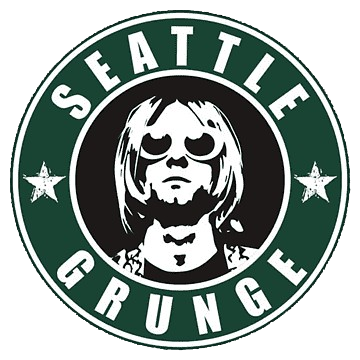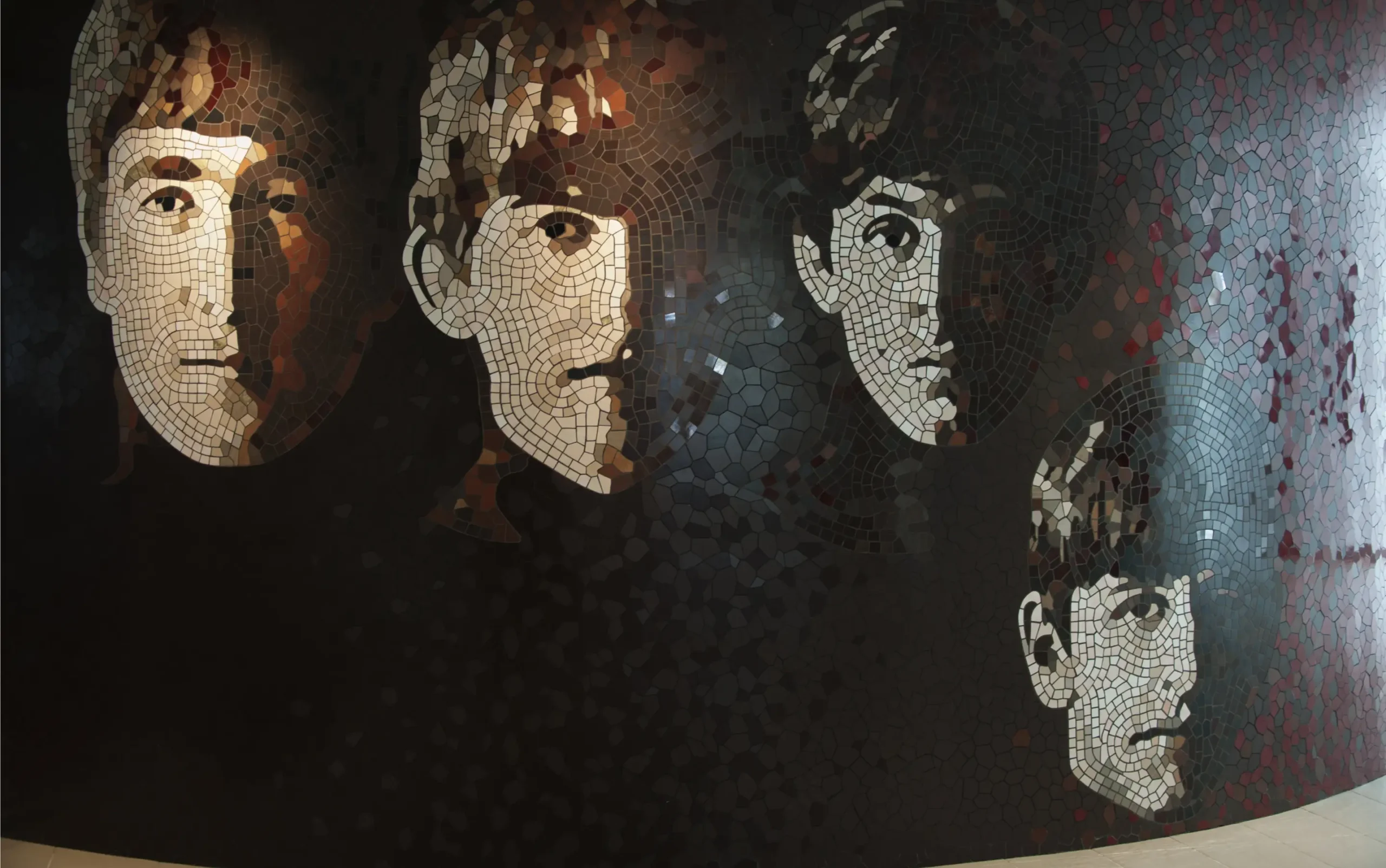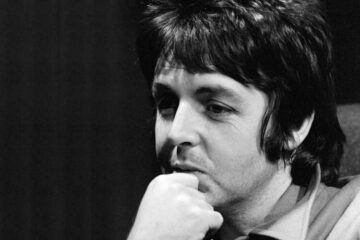learned about the Beatles in the spring of 1980 from my older brother Craig. I was only a kid, but I started listening obsessively to their music and reading everything I could get my hands on about the band.
But 1980 was a bad year to become a Beatles fan: John Lennon was murdered in December of that same year.
I’m still a massive fan — so much so that my husband Michael and I recently went to Liverpool, England, to see the hometown of the band’s four famous members: Lennon, Paul McCartney, George Harrison, and Richard Starkey (who is better known by his stage name, Ringo Starr).
There are lots of reasons why I love the Beatles:
- I agree with the critical consensus that they’re the best rock band ever. They also created the idea of the modern rock band, pioneering “concept albums,” and distinctive covers, and lyric sheets, and stadium tours, and all kinds of studio and musical innovations, and on and on and on.
- They turned pop music into an art form. Virtually every one of their 213+ songs includes something unique and interesting — like those fantastic staccato violin chords in “Eleanor Rigby,” or the delightful lyrics to “Ob-La-Di, Ob-La-Da” and how, at the end of the song, Desmond and Molly happily trade places, and she goes off to work in the marketplace, and he stays home with the kids — in 1968, about a decade before anyone had even heard the concept of a “stay-at-home husband.”
- The “classic” Beatles line-up lasted only eight years, from 1962 to 1970. And yet, they’re the best-selling musical act of all time. How cool is it that the most artistically successful musical act is also the most commercially successful?
But so far, I’m merely repeating the conventional wisdom about the Beatles. Here’s an opinion of mine that’s a bit more controversial:
John wasn’t the “cool” Beatle. Paul was.
John and Paul were the group’s primary songwriters.
They were both insanely creative but also intensely competitive. They agreed early on to share the songwriting credit on all Beatles songs, and initially, they wrote most of their songs together, each openly acknowledging that the other made him better.
As the years wore on, they still contributed to each other’s songs, but they primarily wrote alone — and their longstanding desire to upstage each other led to increasing musical greatness and sophistication on both sides.
Their great artistic rivalry eventually even inspired the long-ignored George to start writing incredible songs. Interestingly, George’s delightful “Here Comes the Sun” is the most popular Beatles song on Spotify.
But John has long had the reputation as the “cool” Beatle.
That’s partly due to their demeanor.
Paul was always the more optimistic, approachable, and non-threatening one — in real life and in his songs. And, in fairness, some of his post-Beatles work could be decidedly saccharine, which hasn’t helped his legacy.
John, meanwhile, was rebellious and edgy — the Beatle with “attitude.” In 1966, John caused an enormous controversy when he gave an interview where he said:
“Christianity will go. It will vanish and shrink. I needn’t argue about that; I’m right and I’ll be proved right. [The Beatles are] more popular than Jesus now; I don’t know which will go first: rock ‘n’ roll or Christianity. Jesus was all right but his disciples were thick and ordinary. It’s them twisting it that ruins it for me.”
Also in 1966, John began dating an avant-garde artist named Yoko Ono — despite John being married. Soon, John was annoyingly insisting that Yoko sit in on all the Beatles’ formerly sacrosanct recording sessions. John and Yoko were also releasing their own “experimental” records, including a 1968 album of shrieks and strange noises recorded in one night with a photo of the two of them fully naked on the front cover.
In the Beatles, John tended to write harder-edged songs, like “Run for Your Life” and “Happiness is a Warm Gun.” In 1968, for the first single to be released on the Beatles’ new “Apple” record label, John — an open Marxist — pushed his song “Revolution”: a bold riff on radical political activism that even included a cheeky, approving nod to violent revolution.
It’s easy to see why some people find John so interesting.
Paul was different.
While John was busy expressing himself, Paul was more interested in “uncool” things like discipline, focus, and musical accessibility.
Paul wanted one of his songs to be the first Apple single — with a slightly sanitized version of John’s “Revolution” on the B-side.
Paul won the argument, and “Hey, Jude” broke sales records and quickly became known as one of the greatest songs of all time.
For John, self-expression was the most important thing. Paul was much more of a workhorse, more interested in melody, precision, and — yes — innovation.
I’m glad John got off so many witty one-liners, and he indeed wrote some fantastic music, including three of my all-time favorite Beatles songs: “Girl,” “A Day in the Life,” and “The Ballad of John and Yoko.” He also wrote my single favorite ex-Beatles song, “Happy Xmas (War is Over).”
But while John was busy being sardonic, Paul was mastering virtually every music genre imaginable — from American country ( “Rocky Racoon”), to boogie-woogie (“Lady Madonna”), to religious hymns (“Let it Be”), to doo-wop (“Oh! Darling”), to music hall (“Your Mother Should Know”), to romantic ballads (“Michelle” and “Here, There, and Everywhere”) — while also taking the time to (arguably) create the world’s first heavy metal song (“Helter Skelter”).
Oh, and that incredible eight-song medley on the flip side of Abbey Road? That was Paul’s idea — and mostly Paul’s songs.
And Sgt. Pepper’s Lonely Hearts Club Band — often considered the best album of all time? Also mostly Paul.
John was especially critical of what he called Paul’s “granny music” — namely, music that didn’t sound like rock ‘n roll.
But that criticism seems downright silly — and was maybe the result of jealousy — when you realize John meant timeless classics from Paul like “When I’m 64,” “She’s Leaving Home,” “The Fool on the Hill,” “Mother Nature’s Son,” “Honey Pie,” and “Maxwell’s Silver Hammer.”
Paul sometimes criticized John’s music too. He didn’t like “Revolution 9,” the eight-minute experimental “sound collage” John did with Yoko for The Beatles album (also known as The White Album). John not only wanted to release the “song” as the album’s single, he also wanted it to be the future direction for all Beatles music.
But Paul was much less public with his criticisms.
And he was also, well, right. “Revolution 9” is nonsensical and was a terrible direction for the Beatles — self-indulgent and lazy.
To be very clear, it was absolutely the tension and contrast between John and Paul that helped make the Beatles so incredible. John and Paul argued about the first single for Abbey Road too — and John correctly won that argument: “Come Together” over “Maxwell’s Silver Hammer” (on a double A-side single with George’s wonderful “Something”).
Even so, all this makes Paul sound pretty cool to me.
And my feelings about their respective “coolness” are only partly about the music. John could also be a real jerk — not just to the wife and child he abandoned in the 60s, but to his fellow bandmates.
The break-up of the Beatles was ugly, and John expressed his resentment of Paul in the lyrics of some of his solo work. In one song, “How Do You Sleep?”, he sings of Paul:
The only thing you done was yesterday
And since you’re gone you’re just another day
As usual with John, this is clever wordplay, referencing one of Paul’s most popular Beatles songs, “Yesterday,” and also a then-recent McCartney solo hit, “Another Day.”
But “uncool” Paul had the greatest mic-drop moment in the history of pop music when he responded to Lennon’s digs with his own song, “Silly Love Songs,” an infectious ditty that blithely dismissed John’s sour humorlessness and then joyously celebrated Paul’s own (inaccurate) reputation for writing only frothy songs without substance.
Some people want to fill the world with silly love songs
And what’s wrong wrong with that, I’d like to know?
Cause here I go again
“Silly Love Songs” quickly became Paul’s 27th Billboard Hot 100 number one hit as a songwriter. His total now stands at 32 number ones — the all-tme record.
And Lennon wasn’t just obnoxious to Paul.
In one interview, John also said:
“Let’s say, I think it’s possible for John and Paul to have created [the Beatles] with two other guys. It may not have been possible for George and Ringo to have created it without John and Paul. OK?”
Which, frankly, is 100% true. But it’s also a 100% horrible thing to say about yourself and your former bandmates!
Truthfully, I know why the suggestion that John — not Paul — was the “cool” Beatle triggers me so strongly. It brings up two ideas about artists and the arts that I hate and that I profoundly disagree with:
- That artistic genius is some romantic, involuntary state of being — not something that comes from discipline, focus, and years of plain old hard work.
- And that artistic genius somehow excuses someone from being a total jerk.
John and Paul did have a reconciliation of sorts. In one of the last interviews before he was killed, John said about Paul:
“He’s like a brother. I love him. Families — we certainly have our ups and downs and our quarrels. But at the end of the day, when it’s all said and done, I would do anything for him, and I think he would do anything for me.”
And, of course, in “Here Today,” Paul’s stunningly beautiful musical tribute to John after he died, he sang about his former bandmate:
And if I say
And in the end, I think John, Paul, George, and Ringo all came to understand that for the Beatles to be what they were, things had to go down exactly the way they did.
In other words, all four of them learned to…let it be.




